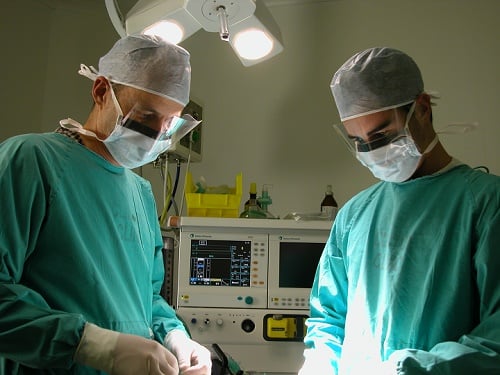
I have transitioned to more part-time clinical work speaking, writing and consulting. “We are burdened more by nonmedical business or insurance professionals without any medical training. “It has gotten worse for all of us, unfortunately - whether you work in the hospital or in the outpatient setting,” she told NBC News. Nicole Swiner, a physician and author, has stuck with being a doctor because she loves it so much, but she deeply empathizes with those who decide to leave. I had my first child and was barely seeing him. And then there was the issue of work-life balance. “Some parts were incredible, but the moments when I felt I was making a true difference were too few and far between. “As a patient you want your doctor to love and be passionate about their work - and I realized that wasn't me,” Seo said. She wound up leaving medicine to focus on education because she felt, to some extent, she’d defaulted into a career that turned out to be more tedious than expected. Occupational physicians pay scales Doctors working as occupational physicians outside the NHS both as employees and self-employed contractors should earn at least as much as those in the NHS. to study health care management and policy. Armed forces doctors pay scales Read about the latest pay agreement and recommended salaries for armed forces doctors. for several years before heading to the U.S. We work in collaboration with other trusts across the north east and north Cumbria and also throughout Yorkshire and Humber to make sure there is a wealth of opportunity for medical. The Trust is committed to providing high quality medical education for all medical students and doctors in training.
/cdn.vox-cdn.com/uploads/chorus_image/image/67781262/merlin_2563542.0.jpg)

Ha-Neul Seo, director of global recruitment at EF Education First in London, was a general practitioner in the U.K. Medical students and doctors in training. New research by Stanford Medicine, conducted by The Harris Poll, found that 59 percent think EHRs "need a complete overhaul " while 40 percent see "more challenges with EHRs than benefits."ĭr. Some cite electronic health records (EHRs) as part of the reason - especially old school doctors who don’t pride themselves on their computer skills. This “bottleneck effect” doesn’t usually sour grads on staying the course, Fowler finds, but he does see plenty of doctors in the later stages of their careers hang up their stethoscopes earlier than expected. There is this bottleneck effect.” The mounting bureaucracy So you have that population of people who have an MD but didn't practice for that reason. “There aren't enough residency slots for medical grads. “Graduating med school doesn't mean you’ll get into a residency,” said Fowler. This drastic career change can be a result of new med school grads being unable to find a residency within a reasonable period of time. “They're having a harder time attracting people."īut perhaps the more interesting story lies not with those deciding to eschew medical degrees it’s with the people who went through all that training, who became doctors - and then decided to opt for another path. Once you have achieved this you will need to register for a licence from the General Medical Council (GMC), and gain member ship of the Royal College of General Practitioners, which requires passing three exams.“This is why places in middle America hire firms like ours,” Fowler said. You must gain a Certificate of Completion of Training (CCT) to complete your training. This entails spending between 18-24 months working as a specialty registrar in a hospital, and 12-18 months as a GP specialty registrar in general practice. Then, to become a GP, you will need to take specialist training in general practice.

What happens after your degree?Īfter your degree you will need to take the two-year foundation programme, in which you will try out a range of specialties. Most students take a 5-year undergraduate course, but those who already hold a BSc degree can take a shorter course.ĭepending on your programme you will qualify with either a Bachelor of Medicine (MB) or Bachelor of Medicine, Bachelor of Surgery (MBBS). You must then complete a medical degree that is recognised by the General Medical Council.
IS DOCTORS IN TRAINING WORTH IT PLUS
Three A-levels at grade A in chemistry and either biology, physics or maths, plus another academic subject.Seven GCSEs, including sciences, with five subjects at grades 9 to 7 (A* or A) and English and maths at least grade 6 to 5 (B).


 0 kommentar(er)
0 kommentar(er)
